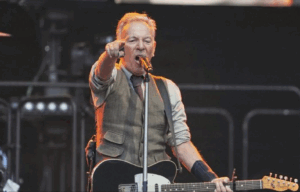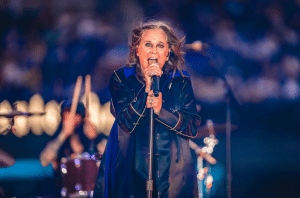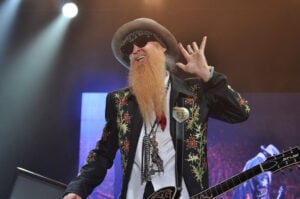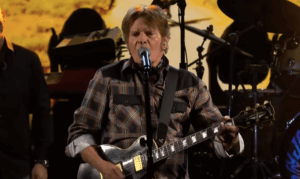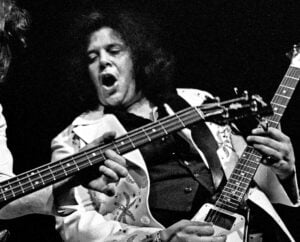Former Vice President Dick Cheney Dead at 84
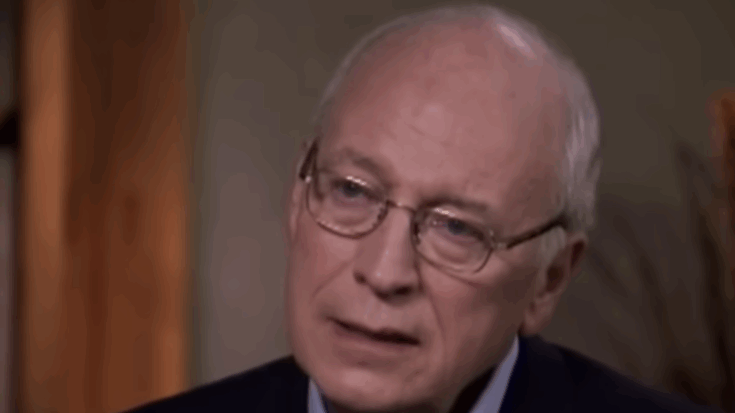
via ABC News / Youtube
Dick Cheney, the most influential vice president in modern American history and a central force behind the United States’ “war on terror,” has died at 84. His family announced that he passed away due to complications from pneumonia and cardiac and vascular disease.
“His beloved wife of 61 years, Lynne, his daughters, Liz and Mary, and other family members were with him as he passed,” the Cheney family said in a statement.
They described him as “a great and good man who taught his children and grandchildren to love our country, and to live lives of courage, honor, love, kindness, and fly fishing.”
“We are grateful beyond measure for all Dick Cheney did for our country,” the family added. “And we are blessed beyond measure to have loved and been loved by this noble giant of a man.”
The Power Behind the Presidency
Serving as the 46th vice president under President George W. Bush from 2001 to 2009, Cheney was widely regarded as one of the most powerful and polarizing figures ever to hold the office. His sharp intellect, mastery of bureaucracy, and hawkish worldview helped shape two wars and redefine America’s foreign policy for a generation.
Bush, in a statement Tuesday, remembered Cheney as “a decent, honorable man,” adding, “History will remember him as among the finest public servants of his generation — a patriot who brought integrity, high intelligence, and seriousness of purpose to every position.”
A former White House chief of staff, defense secretary, and congressman from Wyoming, Cheney’s influence often extended beyond his formal role. While caricatures of him as the “real president” exaggerated his authority, few denied his sway over policy inside the Bush White House.
September 11 and the “War on Terror”
Cheney was in the White House on the morning of September 11, 2001, when hijacked planes struck the World Trade Center. With Bush away in Florida, Cheney took command from a secure underground bunker, issuing orders that included authorizing the military to shoot down any additional hijacked airliners.
“In that moment, you knew this was a deliberate act. This was a terrorist act,” Cheney later told CNN’s John King in 2002.
The attacks transformed Cheney’s worldview and solidified his commitment to an assertive, preemptive use of American power. He became one of the chief architects of the invasions of Afghanistan and Iraq — the latter justified by now-discredited claims that Saddam Hussein possessed weapons of mass destruction and ties to al Qaeda.
Postwar investigations revealed those claims to be unfounded. Still, Cheney maintained that he and other officials acted on “the best available intelligence” and rejected accusations that the administration distorted the facts. “Any claim that the data was distorted, hyped, or fabricated is utterly false,” he said in 2005.
Controversy and Conviction
The wars in Iraq and Afghanistan — and the administration’s policies on detention and interrogation — defined Cheney’s legacy. As vice president, he forcefully defended “enhanced interrogation techniques,” which critics condemned as torture, and the indefinite detention of terror suspects at Guantanamo Bay.
“I would do it again in a minute,” Cheney said in 2014 when confronted with a Senate report condemning the CIA’s use of brutal methods.
By the time he left office, Cheney’s approval rating had fallen to 31%, and he had become a symbol of the overreach and moral compromises of the post-9/11 era. Yet he remained unrepentant. “It was the right thing to do then,” he told CNN in 2015 of the Iraq invasion. “I believed it then, and I believe it now.”
A Rift with His Own Party
Though a lifelong conservative, Cheney’s later years were marked by estrangement from the Republican Party he once helped lead. His sharp criticism of former President Donald Trump — whom he labeled “a coward” and “a greater threat to our republic than any individual in history” — alienated many of his former allies.
During the 2022 midterm elections, he appeared in a campaign ad supporting his daughter, Wyoming Rep. Liz Cheney, who had condemned Trump’s role in the January 6 Capitol attack. Wearing his signature cowboy hat, the elder Cheney looked into the camera and said, “He is a coward. A real man wouldn’t lie to his supporters. He lost his election, and he lost big.”
In one of his final political acts, Cheney endorsed Democrat Kamala Harris for president in 2024, saying he had a “duty to put country above partisanship.”
From Wyoming to Washington
Richard Bruce Cheney was born January 30, 1941, in Lincoln, Nebraska, and raised in Casper, Wyoming. After struggling at Yale and leaving the university, he worked on power lines and was twice arrested for drunk driving before turning his life around. He earned bachelor’s and master’s degrees in political science from the University of Wyoming and married his high school sweetheart, Lynne Vincent, in 1964.
Cheney began his political career as an aide in the Nixon administration and rose through the ranks to become White House chief of staff under President Gerald Ford in 1975. He later served six terms in Congress and built a reputation as a staunch conservative and skilled political operator.
President George H. W. Bush appointed him defense secretary in 1989, where he oversaw the Panama invasion and the 1991 Gulf War. Between government posts, he served as CEO of Halliburton, the Texas-based energy company that later became synonymous with the Iraq War’s corporate contracting boom.
Health Battles and Final Years
Cheney’s health struggles were nearly as legendary as his political career. He suffered his first heart attack at 37 and endured several more during his years in public office. In 2012, he received a heart transplant, which he later described as “the gift of life itself.”
Despite these challenges, Cheney remained active in public debate, co-authoring memoirs and collaborating with his daughter on a book about constitutional democracy.
In 2021, he returned to the Capitol on the first anniversary of the January 6 insurrection. Democrats lined up to greet the former Republican vice president, with then-Speaker Nancy Pelosi embracing him — a moment that underscored the seismic political shifts of the Trump era.
“It’s not leadership that resembles any of the folks I knew when I was here for 10 years,” Cheney said that day, lamenting what he saw as his party’s moral decline.
Legacy of Power and Controversy
Cheney’s life traced the arc of American power in the late 20th and early 21st centuries — from the Cold War to the war on terror, from conservative triumph to internal division. Admired by supporters as a patriot of conviction and derided by critics as the embodiment of executive overreach, he remained steadfast in his beliefs until the end.
Cheney is survived by his wife Lynne, daughters Liz and Mary, and seven grandchildren.






